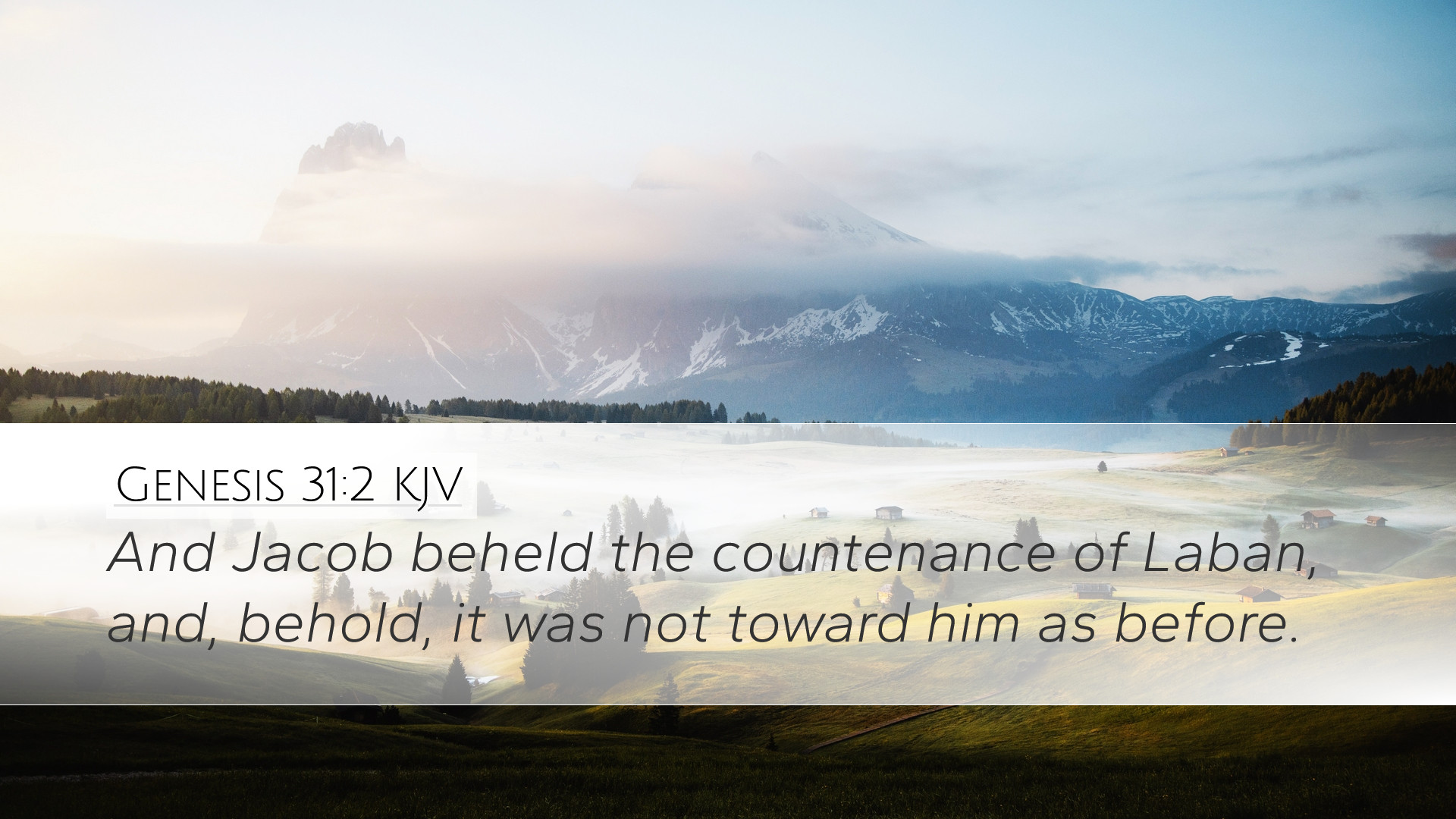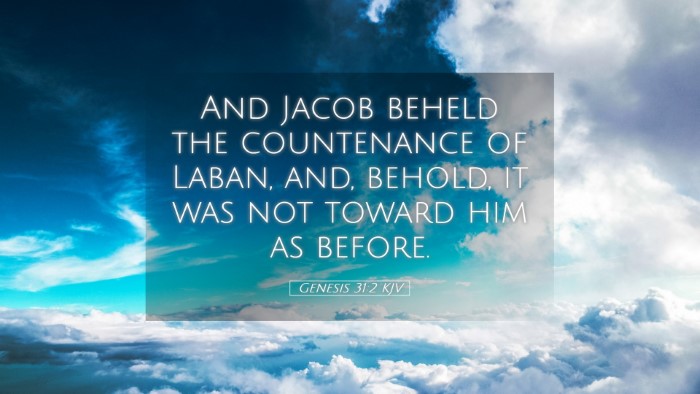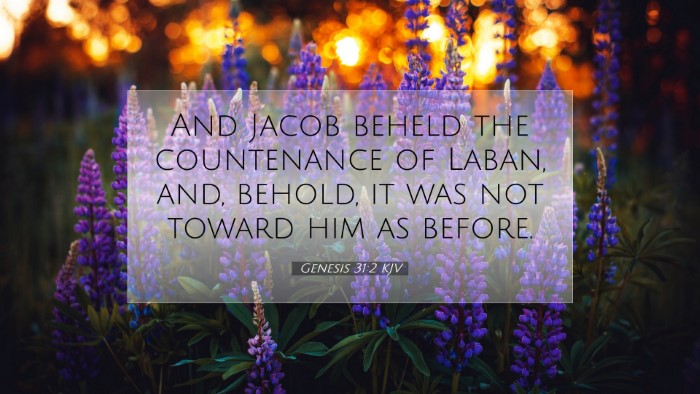Genesis 31:2 states: "And Jacob observed the countenance of Laban, and behold, it was not toward him as before." This verse serves as a critical moment in the narrative of Jacob, shedding light on his relationship with Laban and the dynamics that underpin his departure from Haran. Below, we explore this verse through the insights gleaned from various public domain commentaries.
Contextual Background
The backdrop of this verse lies within the narrative of Genesis, where Jacob has been living with his uncle Laban for over twenty years. Laban, who initially welcomed Jacob, has grown increasingly hostile. This transition in Laban's demeanor heralds a pivotal point in Jacob's life, prompting him to reassess his situation.
Observations on Laban’s Countenance
- Matthew Henry's Commentary: Henry notes that Jacob's observation of Laban’s change in demeanor was not mere perception but a divine indication. The countenance is often reflective of one's inner thoughts or intentions. Henry emphasizes that this observation suggests a brewing conflict within Laban, possibly due to the increasing prosperity of Jacob.
- Albert Barnes' Notes: Barnes expands on the significance of the word "countenance," indicating a deeper relational decline. He suggests that the countenance of a person conveys emotional states. Laban's altered expression signifies his growing resentment and jealousy over Jacob's flourishing success, which was attributed to divine favor.
- Adam Clarke's Commentary: Clarke offers insight into the significance of the phrase "as before." He underscores that this indicates a previously amicable relationship has soured. Jacob's immediate awareness of Laban's feelings reflects a keen sensitivity to the dynamics at play, which Clarke interprets as an instinctive awareness that often precedes momentous decisions.
Theological Implications
The shift in Laban's disposition serves as a crucial theological lesson about the relationships we maintain, both in a familial and broader social context. The tensions in Jacob’s relationship with Laban provide a narrative framework for understanding how divine providence operates in human relationships.
1. Divine Providence: The verse illustrates God's sovereign hand at work in shaping events. Both Henry and Barnes point out that Jacob’s ability to discern the change in Laban's attitude is a manifestation of God guiding him, a common theme throughout Jacob's narrative.
2. Human Sensitivity: The insights on Jacob’s sensitivity to Laban’s countenance serve as a reminder for individuals today to be attuned to the emotional states of those around them. This awareness can lead to timely decisions and actions that align with God’s purposes.
3. The Nature of Relationships: Clarke's reflections on relationships remind us that even the most promising partnerships can deteriorate. The dialogue encourages readers to consider the importance of forgiveness, reconciliation, and the willingness to confront difficult truths within relationships.
Applications for Today
The relevance of Genesis 31:2 extends beyond its historical context; it speaks directly to contemporary issues faced in ministry, leadership, and personal relationships.
- Pastoral Leadership: Leaders are called to navigate complex relationships, much like Jacob. Understanding the emotional and spiritual states of congregants can inform better pastoral care. Pastors must learn to read the signs of distress or discord among their flock.
- Christian Relationships: Laypersons and students alike can apply Jacob’s discernment to their own interactions. It is essential to recognize when relationships shift and to seek resolution through Christian principles of love and grace.
- Decision-Making: Jacob's decision to leave Laban despite the obvious risks challenges modern believers to trust in divine guidance when faced with difficult choices. The ability to discern God’s direction often comes through subtle clues such as the attitude and behavior of those around us.
Conclusion
Genesis 31:2 encapsulates a crucial moment of realization for Jacob, marking a transition in his life journey. The insights from renowned commentaries provide depth to our understanding of this verse, emphasizing the themes of divine providence, human relationships, and spiritual discernment. As pastors, students, and theologians reflect on this passage, they are encouraged to consider its implications for their lives and ministries, fostering growth in awareness, sensitivity, and responsiveness to God's leading.


